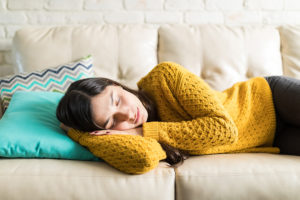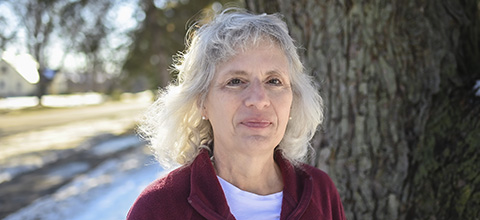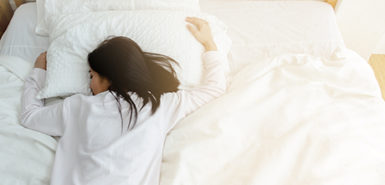
Who doesn’t love that sweet little break at midday? You put your head down for a refreshing nap, then wake up to continue on with your day, refreshed and bright-eyed.
From preschool days to the golden years, many people take short naps during the day to keep up energy levels.
But are those naps good for you?
One recent study found an association between napping and hypertension. Of the 360,000 people who participated in the study, those who frequently napped had a 12% higher likelihood of developing high blood pressure and a 24% higher likelihood of stroke.
But nappers shouldn’t lose sleep over the new findings, Kelly Waters, MD, an expert in sleep medicine and neurology with Corewell Health, said.
“The new study shows more of a correlation than straight causation that nappers have more health issues,” Dr. Waters said.
Her advice?
“Listen to your body for what it needs. Many people who take naps do so because they had poor sleep—or not enough sleep—during the night.”
Poor sleep often leads to health issues, Dr. Waters said. Napping in itself is probably not harmful, but poor sleep habits can be harmful.
Sound sleep
If you’ve been getting poor sleep at night but it hasn’t become a chronic problem, a nap may help you catch up on your rest, Dr. Waters said.
“Throughout your day, your brain uses up nutrients,” she said. “So around midafternoon, many of us start to feel sleepy. That’s normal. Sleep pressure builds throughout the day and comes from circadian rhythm training and also used nutrient metabolites that add up through the day. This is the process that builds to put you to sleep at night, but there is also a slight bump midday, at siesta time.
“Being sleep deprived to less than 4 hours reduces how well your brain functions to keep you alert and to react appropriately, particularly while driving. This delayed reaction time has been likened to alcohol intoxication.”
Some naps, however, are better than others.
“Catnaps are best,” Dr. Waters said. “Refreshing and short, about 10 to 20 minutes during the middle of the day. When you go over an hour, that can affect the quality of your sleep at night. It could be an indication of another health issue.”
For the best sleep, maintain a regular sleep schedule on weekdays and weekends.
If you normally wake up at 7 a.m. on weekdays, try to keep your weekend wake-up time within an hour or two of that same time.
“If you sleep in too much on a weekend, it can be too difficult for your body to readjust to Monday morning,” Dr. Waters said.
Build a routine
A good bedtime routine can help your body recognize when it’s time to wind down and get ready for sleep. Put the electronics away, dim the lights and opt for quieter activities such as reading a book or listening to a podcast.
Most adults need about seven to nine hours of sleep, but genetics can also affect each person’s sleep requirements. Children will need more sleep.
“In general, a child will need 10 to 12 hours of sleep a night,” Dr. Waters said. “A young adult, eight to 10 hours.”
Aging shouldn’t signal a need for less sleep.
“We often hear that elderly people need less sleep, but that’s not true,” she said. “Deep sleep time during the night may shorten for an elderly person, but the overall need is still seven to eight hours.
“There is also a genetic variant of short-sleeper patients. Genetic testing has identified the DEC2 gene. Carriers are unable to sleep longer amounts, do not feel any ill effects from shortened sleep, and in fact are quite alert, high-energy individuals, what we might call Type A personalities. This is very rare, and I would doubt that most people, whether Type A or not, are able to truly sustain limited sleep amounts without detriment.”
Follow sleep clues
If you’re getting less than a healthy number of hours of sleep during the night, you may be more inclined to nap. But Dr. Waters recommends resisting the nap and focusing more on improving sleep at night.
“Get up from your desk, walk around, get into bright light, enjoy some social interaction,” she said. “Try to preempt that afternoon sluggishness.”
To understand if a quick midday catnap is good or bad for you, take a close look at nighttime sleep patterns.
The reason for napping may reveal more precise clues about whether the nap is actually beneficial.
“If your sleep patterns are generally good, then the occasional midday catnap is fine,” Dr. Waters said. “If you find that you are tired during the day because you are suffering from insomnia at night or not getting enough hours of sleep—or you have sleep apnea—you will want to address that.”
 /a>
/a>
 /a>
/a>
 /a>
/a>